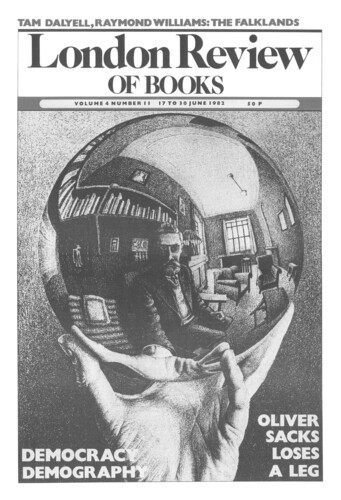Rational Switch
Vernon Bogdanor, 17 June 1982
It was R. B. McCallum who invented the word ‘psephology’ to describe the study of elections. Yet in 1955 he wrote of the act of voting as the last haven of free choice in an increasingly bureaucratised society, an ultimate redoubt to be defended at all costs against the assault of the social sciences. ‘The secrecy of the ballot, the pencilled cross in the secluded polling booth’, was, he said, ‘the great eleusinian mystery of the democratic state. It must be respected as an article of faith.’ Not surprisingly, political scientists have conspicuously ignored this warning. Indeed, as the introduction to Democracy at the Polls points out, the analysis of elections has become one of the main growth areas in the discipline: the behaviourist finds the quantitative methods needed to study elections peculiarly congenial; whilst the electoral process itself, whose rules and regulations vary little between one democracy and another, seems especially suited to comparative study. Analysis of elections also has a normative purpose. ‘The reality of liberty,’ claimed Ernest Barker, ‘consists in the details and the substance of actual institutions.’ Psephology can, therefore, be seen as the discipline that will give flesh and blood to the generalisations made by such classical writers on democracy as Mill and Bryce. For elections throw a searchlight onto the working of the democratic process in different countries, illuminating the assumptions upon which democratic government rests. General elections, to paraphrase Namier, are ‘locks on the stream of … democracy, controlling the flow of the river and its traffic’.

